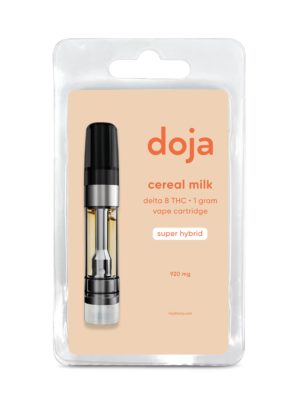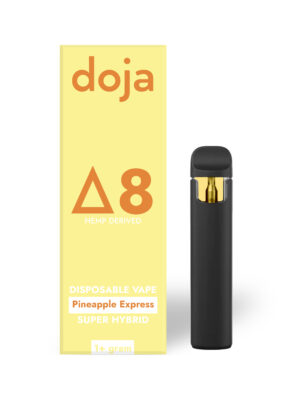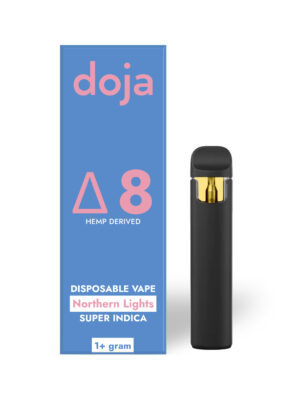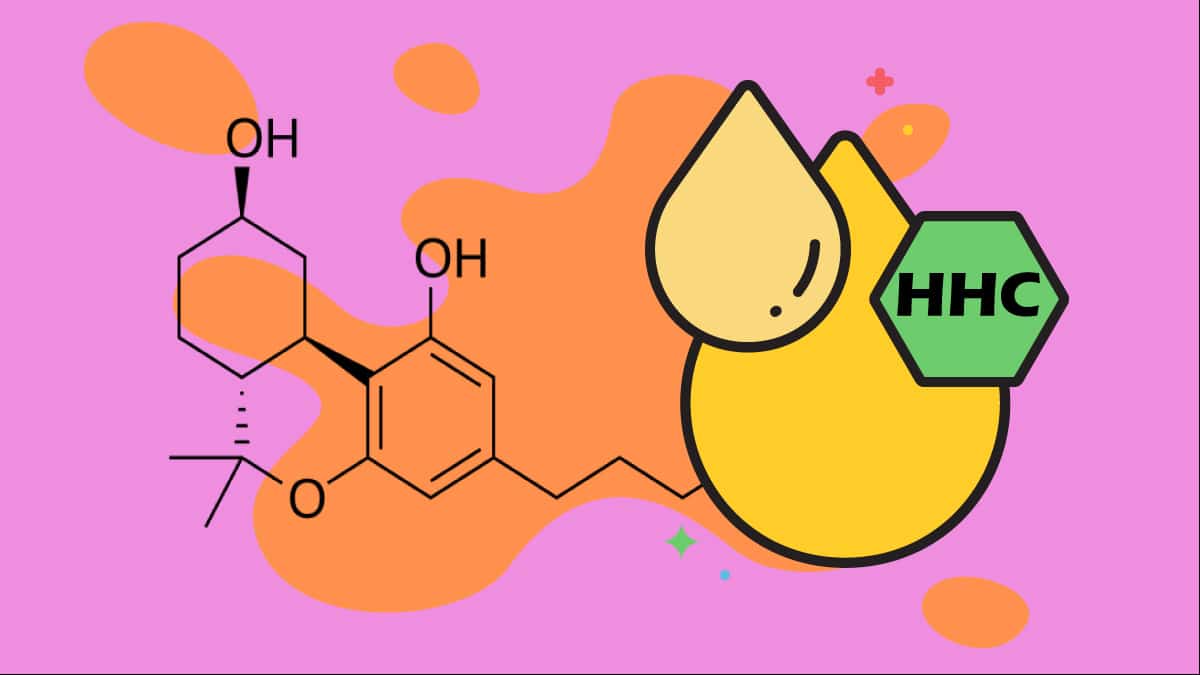The cannabinoid industry is booming in the year 2022. Newer drugs are hitting the market every year. Among these emerging drugs is HHC. A unique derivative of THC cannabinoids extracted from cannabis plants.
HHC produces similar effects as some drugs containing THC. But unlike other drugs, it does not show up in standard drug tests.
HHC is being used as a self-medicating and recreational drug. Although, its full medical potential is still yet to be studied.
HHC is legal under federal law and the majority of state laws.
Important points:
- HHC is a hydrogenated THC that originates from cannabis plants.
- HHC is a psychoactive substance. It produces the same effects as THC and other cannabinoids.
- HHC has a longer shelf life than THC.
- The potency of HHC lies between the strength of Delta 8 and 9.
- HHC has various wellness and health uses.
- Limited research on HHC exists but, if abused, it produces the same adverse effects as THC.
- HHC is a semi-synthetic cannabinoid that falls in a gray area under the law.
- HCC is currently not FDA-approved.
- According to user reports, HHC does not appear in standard drug tests. Although, scientific studies do not confirm it.
Contents
What is HHC?
HHC is short for hydroxy-hexahydro cannabinol. It is a form of THC or tetrahydrocannabinol. It is a cannabinoid that can be extracted from cannabis plants.
HHC is an organic compound derived from hemp plants similar to CBD. The advantage of HHC over Delta-9 or Delta-8 THC is that it cannot be detected with the same drug test for marijuana
Thanks to hydrogenation, adding hydrogen atoms to saturate THC molecules creates the HHC compound.
The result? A more stable THC with better heat resistance and higher yield. It was first done by Roger Adams in the mid-1900s when he was studying Delta 9 THC.
Unaltered and unprocessed natural THC degrades quickly. When exposed to the air for a long time, its double bonds break. The compound slowly turns to cannabinol. When this happens, the degree of effectiveness of the drugs is lessened. The potency of cannabinol is only 10 percent that of THC.
The hydrogenation prolongs the shelf life of the final compound.
The hydrogen component makes the THC less prone to natural degradation. HHC is not easily destroyed by oxidation and solar damage.
Is HHC legal?
Like Delta 8, 10, and other cannabinoids, HHC treads a gray area in the law.
When President Trump signed the Farm Bill in 2018, he opened the doors for hemp and its derivatives. Since then, hemp products have started popping up in the market.
The federal law provides that hemp is permitted if it contains less than 0.3% of Delta 9 THC. It means that lesser cannabinoids are allowed.
While the law seems straightforward, there is still plenty of confusion surrounding hemp-derived products.
Aside from Delta 9, other cannabinoids exist in trace amounts. Only a tiny amount of HHC can be extracted naturally from hemp.
Hemp scientists have discovered a way to make HHC viable by subjecting natural substances to chemical processes. Increasing HHC volume has made the product feasible for commercial use.
Hydrogenation involves altering the chemical composition of natural THC.
Pro-cannabis argues that this does not change that HHC originates from organic plants. Hence, it is still a natural substance.
The Drug Enforcement Agency doesn’t think so. The agency issued an interim final rule stating that all synthetic tetrahydrocannabinol is illegal. Any cannabinoid that goes through hydrogenation and conversion can be defined as an artificial compound.
The DEA agrees that natural hemp-derived substances with less than 0.3% THC levels are legal. But they do not allow synthetic THC of any kind regardless of its origin.
The DEA’s interpretation of the law is yet to be confirmed by the courts. And no pending legislation aimed to clarify the legal loophole is filed in the senate.
So as of now, the status of HHC products borders the legal and illegal.
More than 30 states have adopted the federal provisions. The state laws are as confusing as federal law.
Many businesses are taking advantage of this confusion. They continue to produce and sell HHC products.
Another issue with HHC is that the Food and Drug Authority disapproves of them. Because of the limited research on HHC, the FDA is unwilling to issue approval.
Consumers are expected to use HHC at their own risk. But, some companies and businesses present certificates from private labs attesting product safety.
What are the effects of using HHC?
HHC can be used recreationally and as a medication.
When taken in moderate amounts, users can experience:
- Euphoria
- Increased heart rate
- Calmness or mood changes
- Increase in body temperature
- Mental clarity or stimulation
- More energy or excitement
- Relief from pain
- Muscle relaxation
Many users claim that HHC produces the same effects as Delta 8 and other lesser cannabinoids.
Because it is chemically altered, some aspects of HHC still need to be studied. But so far, the consensus among users agrees that it has a therapeutic benefit.
What are the medical uses of HHC?
Medical professionals do not currently prescribe HHC. It is not an approved treatment for any medical and psychological condition.
It is mainly used as a self-medication and recreational drug.
Although cannabis drugs have been known to:
- Ease pain
- Lessen anxiety, stress, and depression
- Muscle relaxant
- Reduce inflammation
- Control vomiting and nausea
- Boost appetite and improve nutrient absorption
HHC can elevate the mood. It helps with anxiety disorder, bipolar disorder, and other mental health problems.
It can also help improve sleep quality by relieving muscle tension relieving pain. It aids in relaxation by easing hormones like dopamine and serotonin.
What are the side effects of HHC?
Like other cannabinoids, HHC can be harmful when taken in excess.
There are a lot of speculations about HHC and its effects on the body. But because it is relatively new, there is limited research to confirm them.
From what can be gathered from initial reports, HHC has somewhat similar side effects as THC.
HHC abuse can result in:
- Anxiety
- Dizziness
- Dry mouth
- Paranoia
- Insomnia
- Rapid heart rate
- Slow heart rate
- Low blood pressure
- Red eyes
- Lack of coordination
- Confusion and fogginess
- Agitation
- Hallucinations
- Chest pains
- Short term memory loss
These adverse effects can be experienced by new users or develop over time. It can also result from a reaction to other medications and other medical conditions.
Children, pregnant women, and nursing mothers are not advised to use HHC for any purpose. They are more likely to experience adverse effects.
What is the safe HHC dose?
Safe dosage would depend on a number and combination of factors like:
- Age
- Weight
- Tolerance
- Medications
- Medical conditions
Learn More: How much Delta 8 THC Should I Take?
New HHC consumers may not be aware of their tolerance levels. So, they should start with smaller doses and gradually increase them over time. It gives them a chance to assess how their bodies respond to the drugs.
- Low HHC dose ranges from 10-20 mg per serving.
- Moderate HHC dose ranges from 20-50 mg per serving.
- Heavy HHC does range from 50-100 mg per serving.
HHC has a lower potency than Delta 9 but higher than Delta 8. For old cannabis users, they can either:
- take the same or lower dose as Delta 9;
- or the same or slightly higher dose as Delta 8.
Complete newbies should exercise more caution. Some people can be allergic to cannabis and cannabis-derived products.
So, start with the smallest dose. Take 1-2 mg microdoses and see if you develop allergic and other adverse reactions.
If you do not feel this for a couple of hours, you can slowly increase your dosage with another 1-2 mg.
Does HHC show up in a drug test?
Unlike other lesser cannabinoids, HHC will not appear in a standard drug screening.
When you take in products with TCH, it gets converted to 11-hydroxy-TCH. It is a metabolite that triggers alerts in a drug test.
For HHC, this does not happen. It does not dissolve into 11-hydroxy-TCH.
It is yet to be proven by intensive research, though. But for now, users confirm that using HHC does not raise any red flags in a standard drug test.
Learn More: Will delta 8 THC make me fail a drug test?
Where can I get HHC?
You can buy HHC in some online stores and licensed CDB shops.
But because it is new, there is still no standard testing protocol. The law and other agencies do not provide regulated testing.
Certificates from private laboratories do not show accurate results. The tests conducted are not approved by the DEA or FDA.
Doja Hemp will not release any HHC products. At least not until there is an approved standard testing protocol. It is in line with our mission to provide top-quality products and ensure consumer safety.
Subscribe to our newsletter below to remain up to date when HHC testing protocols are completed and when you can order these products from our online shop.
Final words
HHC is one of the new rising drugs in the cannabis industry.
HHC has tremendous medical potential. But there is a need for reliable and intensive research on how it affects the human anatomy.
Without approval from the FDA, consumers should be cautious in using HHC products. Self-medicating with HHC can result in adverse effects.




